A key strategic growth pillar for STARKE AYRES Zambia has been to educate small-scale farmers on the benefits of transitioning from growing open-pollinated vegetable seed varieties to improved hybrid seed.
Last year we embarked on a project to spearhead this growth by focusing on three key vegetable production areas and putting full-time resources in each to focus on running farmer training events linked to vegetable demonstration plots. The project, which is co-funded by a local NGO, Musika Development Initiatives, is in full swing despite the challenges we faced with Covid-19.
We have selected 16 demonstration sites to showcase our hybrid product range across the three focus areas. The three areas are located in Southern Province (about 220km from our head office in Lusaka, Lusaka (50km east of central Lusaka) and Central Province (about 160km west of Lusaka). We are also in the process of setting up three mini seedling greenhouses (one in each area) in the communities close to the target farmers to provide proof of concept for the business model of growing seedlings as a value-added business. Below is one of the mini greenhouses being installed.
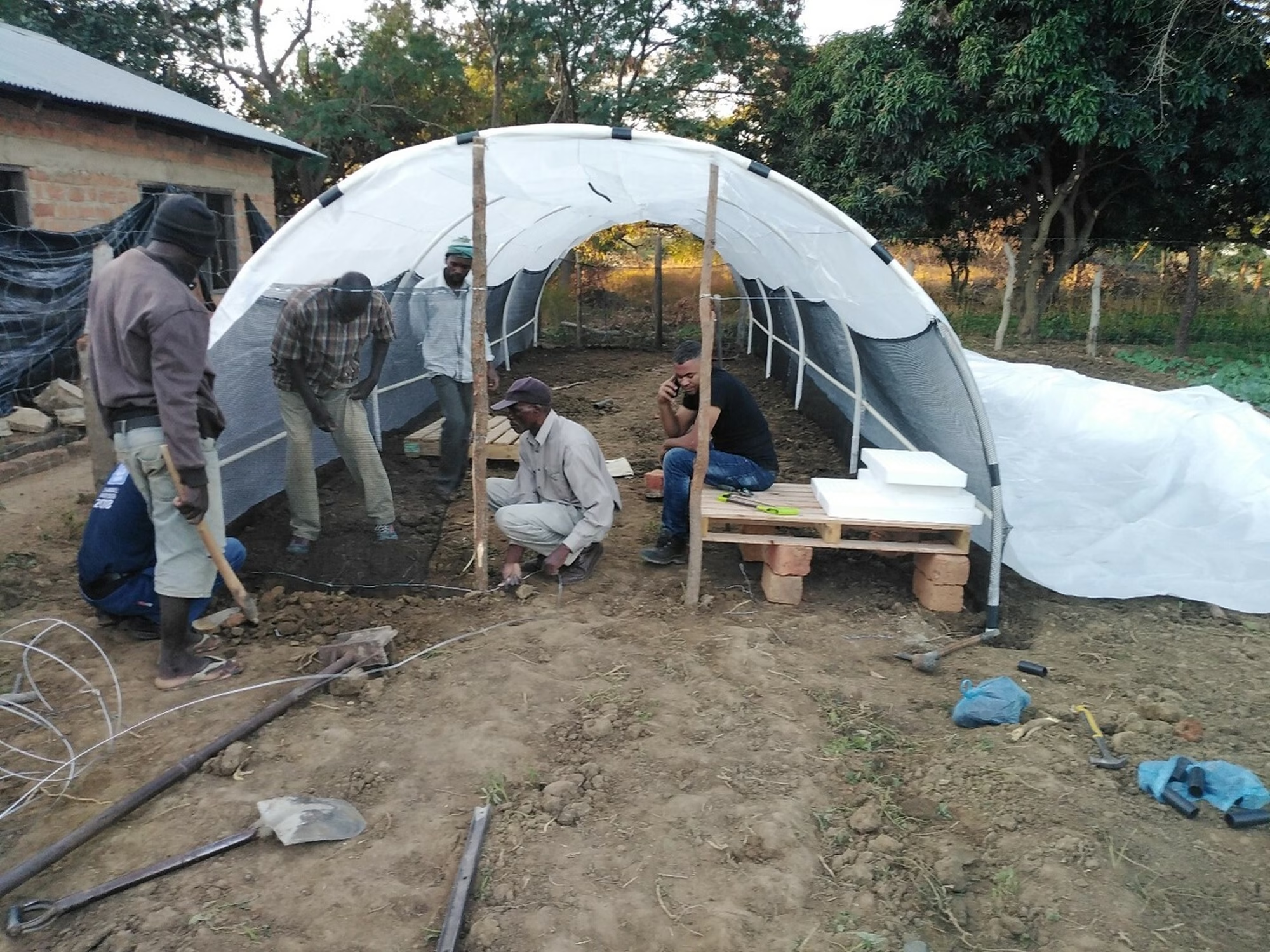
Despite the heavy and continuous rains that were experienced during the growing period, tomato and cabbage performed well. As a result of the Covid-19 pandemic, we had to rethink our more traditional farmer field days and instead make videos to share with farmers to help explain the benefits of using improved hybrid seed to produce better yields, with improved disease tolerance and longer shelf-life as some of the key benefits.
Part of the project was also discussing and explaining the nutritional value of eating a balanced diet and the different nutritional benefits provided by different vegetables. STARKE AYRES appears to be the only input supplier providing this information and has garnered a great deal of community support, especially from the women’s groups who traditionally take responsibility for family health.
We have also managed to partner with a number of farmer-support NGOs and community-based support groups and have so far trained more than 1500 farmers and have seen more than 350 farmers transition to improved STARKE AYRES hybrid seeds.
While the project is entering its final phase, we still have a number of activities planned and hope to extend the project based on the successes already achieved despite the challenge around Covid-19.
One of STARKE AYRES’s demonstration partners is the Zambia College of Agriculture based in Monze. This is a tertiary education institution offering training to school-leavers in general agriculture. We are preparing to extend our partnership with this institution who have in the past trained a number of leading agronomists in Zambia. They have been delighted to work with STARKE AYRES and we have been able to train many of their students on vegetable production using our key hybrids.
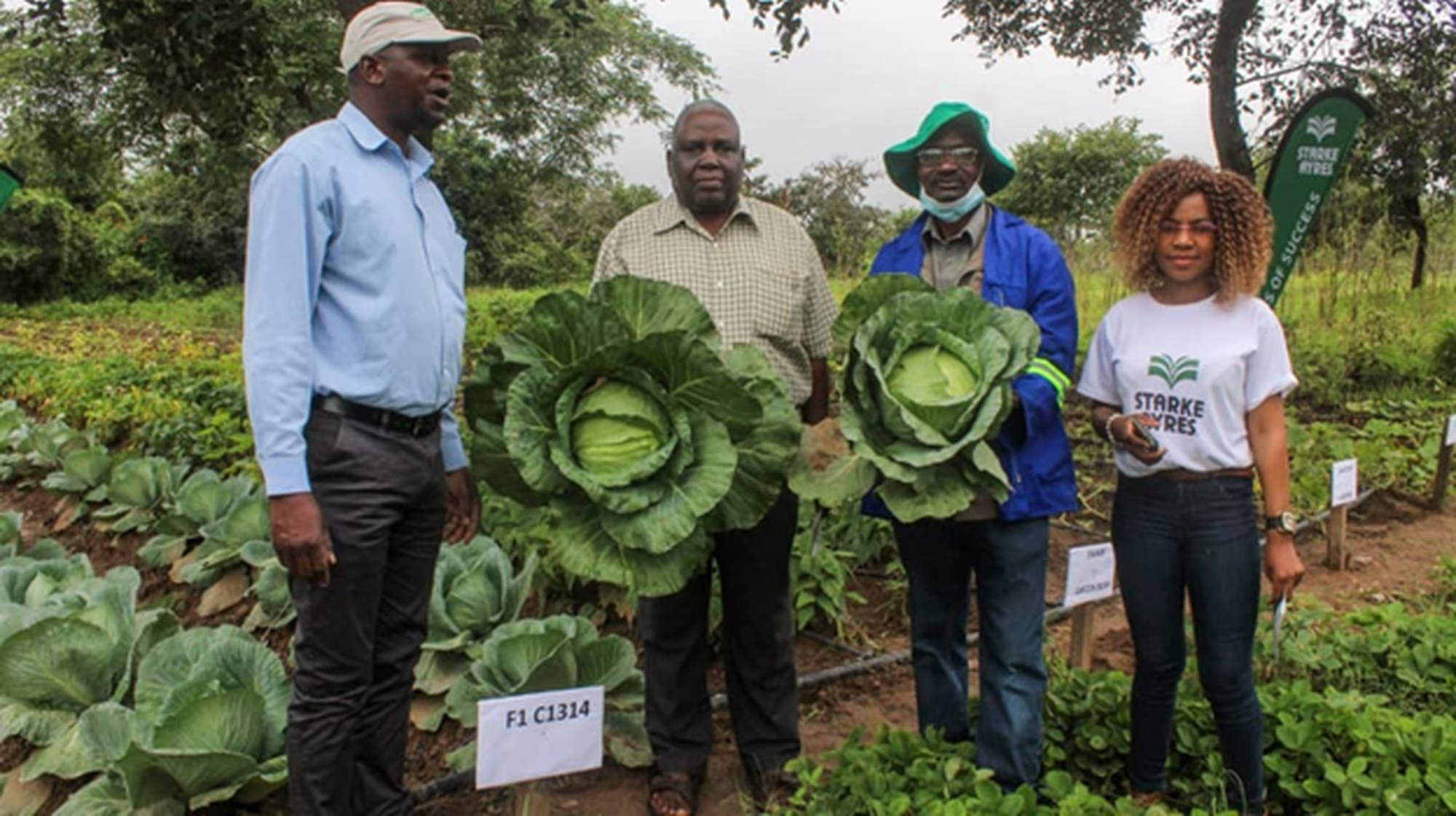
Shadreck Sakala, STARKE AYRES senior sales representative and project overseer; Edward Mudenda, chairman of the Monze District Farmers’ Cooperative; Dr Cletus Namoobe, lecturer at Zambia College of Agriculture – Monze; and Lweendo Hazyoondo, STARKE AYRES Southern Province rural demand creation officer.
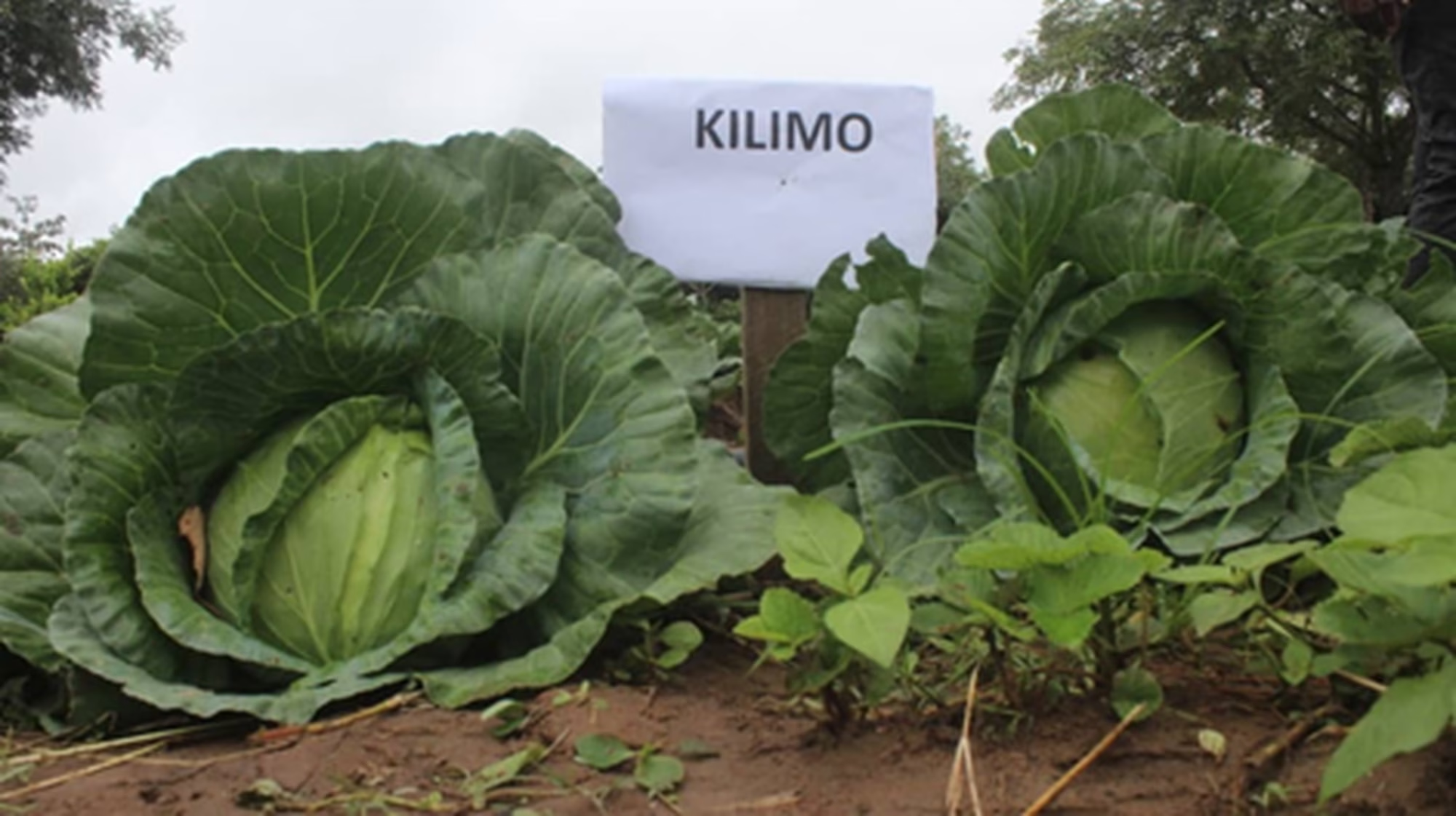
Cabbage KILIMO
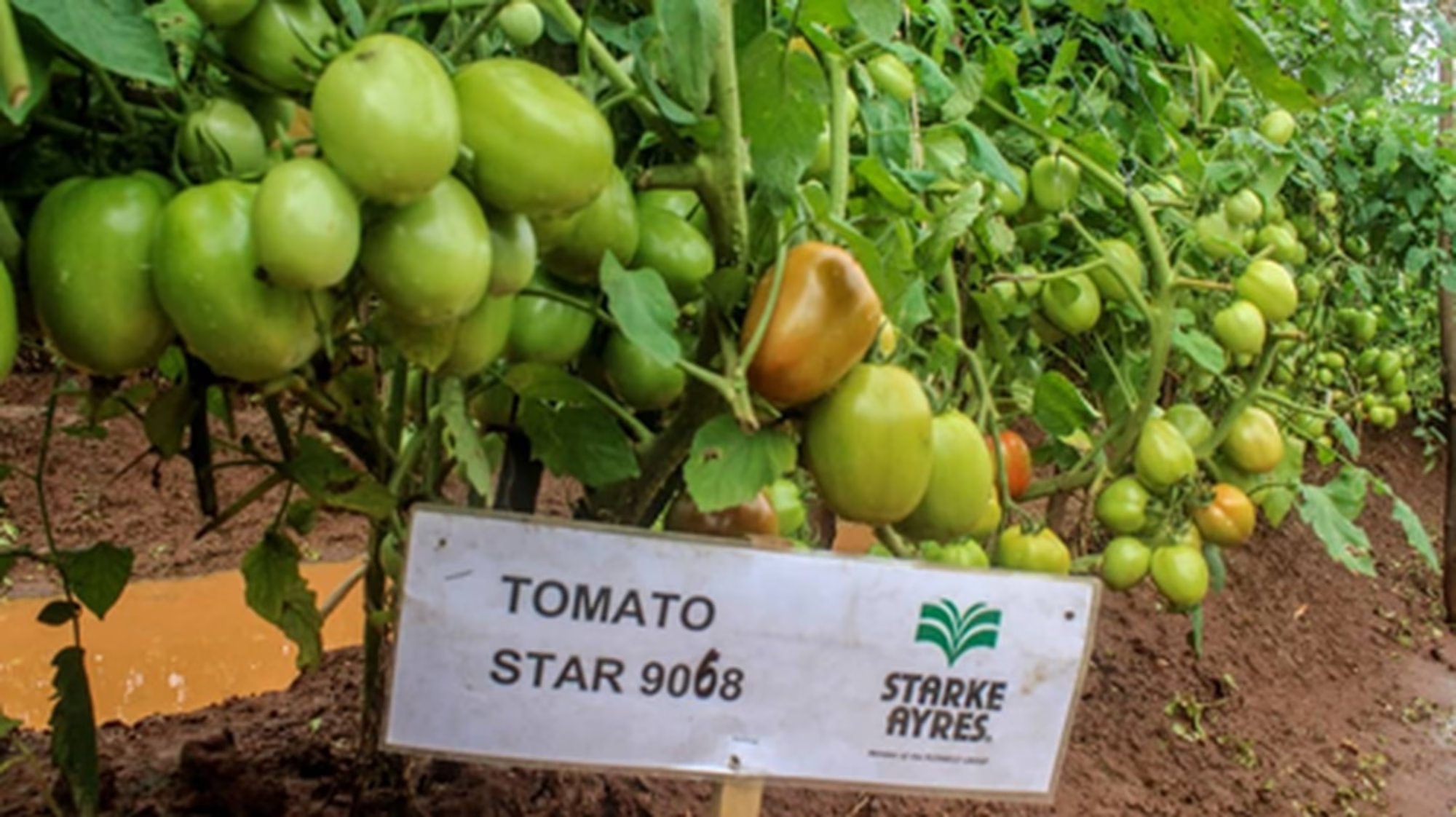
Tomato STAR 9068
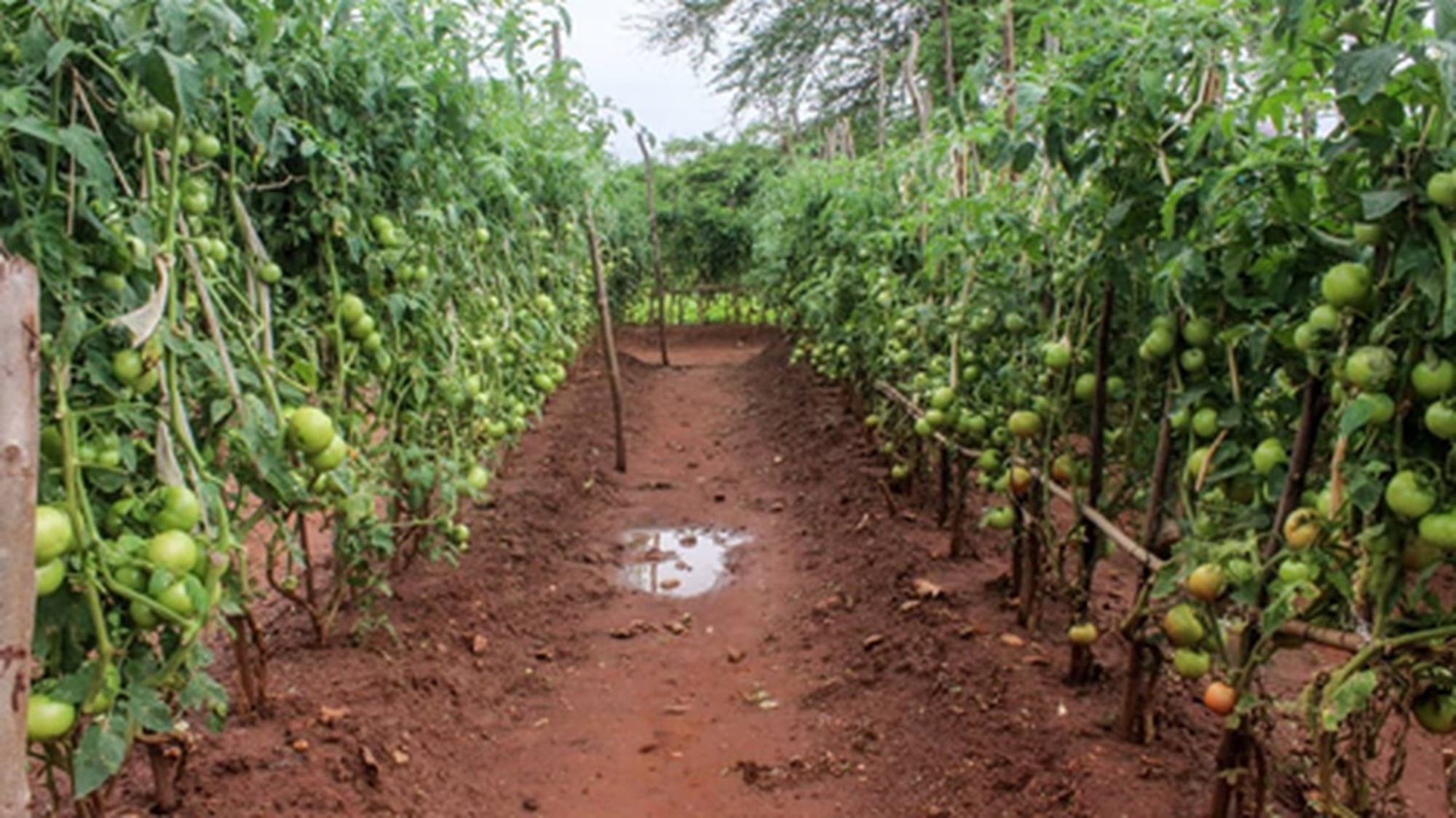
Tomato TRINITY